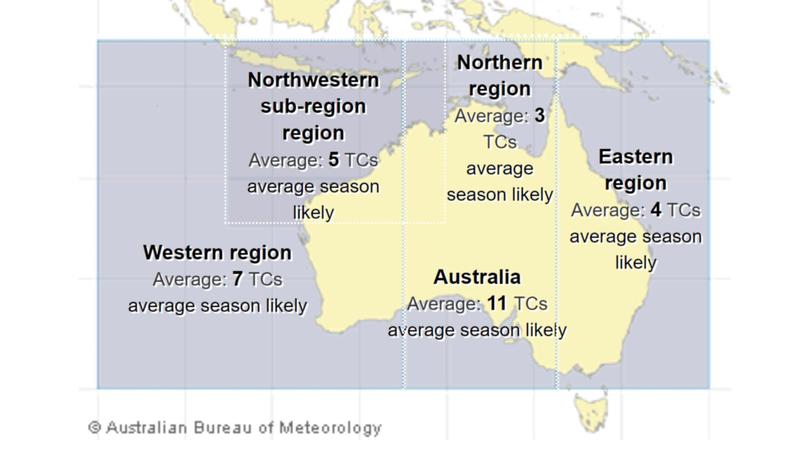‘Now is the time’: Cyclone warning in Bureau of Meteorology advice for Australians ahead of ‘severe weather season’
Australia could be staring down some of the most severe weather in history in the coming months.
Preparation is key — that is the message that the Bureau of Meteorology (BoM) wants Australians to know ahead of a “severe weather season” filled with cyclones, thunderstorms, flooding, heatwaves, and fires.
Meteorologists expect there will be about 11 tropical cyclones across the Australian region this year, and predict that due to warmer ocean temperatures, they are likely to be stronger than average.
Between October and April is the peak season for extreme weather in Australia, but cyclone season kicks off in November and the first cyclone of the season generally hits the coast from December onwards.
Sign up to The Nightly's newsletters.
Get the first look at the digital newspaper, curated daily stories and breaking headlines delivered to your inbox.
By continuing you agree to our Terms and Privacy Policy.Of the 11 cyclones expected in the region — which also includes Papua New Guinea, and Indonesia — only four are expected to cross the Australian coastline.
But because of climate change, it is not just cyclone strength at a heightened risk of increasing.
Storm surges — powerful ocean movements caused by wind action and low pressure on the ocean’s surface — can also be caused by cyclones.
“Storm surge, including from cyclones that don’t make landfall, is a major hazard to coastal communities,” BoM said.
“These impacts can extend beyond the tropics into the southern parts of Australia.
“Due to rising sea levels, the risk of storm surge from tropical cyclones is likely to continue to increase.”
BoM national community information manager Andrea Peace said the cyclones also brought additional dangers such as flooding.
“Any tropical cyclone can be dangerous, and it only takes one to significantly impact communities. Last year we had eight tropical cyclones across northern Australian waters.
“Four crossed our coast, bringing damaging winds and heavy rainfall, leading to flooding.”

Thunderstorms and flash flooding
Heavy rainfall, damaging winds, large hail and the risk of flooding across Australia are all set to ramp up in the coming months as the warmer weather brings more severe thunderstorms, BoM said.
The east coast, including Northern NSW and southern QLD, has the highest risk of severe thunderstorms.
“There’s also a significant risk through inland Western Australia and across the tropical north during the wet season,” BoM said.
The bureau warned that flash flooding and riverine flooding was also more common for the upcoming season, particularly across the northern and eastern parts of the country.
Heatwaves and fires
The Bureau released a heatwave warning this last week for northwestern sections of Australia, but it said on Tuesday that more dangerous stretches of sweltering heat are expected, as is an early start to fire season.
“Severe heatwaves can be dangerous for many people, especially older people, babies, children, pregnant and breastfeeding women, people with medical conditions and people who are unwell,” BoM said.
But aside from the related health impacts, heatwaves can also lead to an uptick in “dangerous and destructive fires”.
“Fire authorities are advising an increased fire risk in the spring months for parts of Queensland, the Northern Territory, western Victoria and southeast South Australia,” Peace added.
“They also advise a potential early start to the fire season in parts of South Australia and Victoria, and extending to Tasmania, if there are warm and dry conditions leading into summer.”
BoM urged Australians to prepare their homes and properties, review and update their emergency plans and create their emergency kits.
“Severe weather can develop quickly and threaten lives and property. Now is the time to prepare,” it said.
“The local emergency authority in each state and territory provides advice on how to prepare.”
Originally published on 7NEWS
